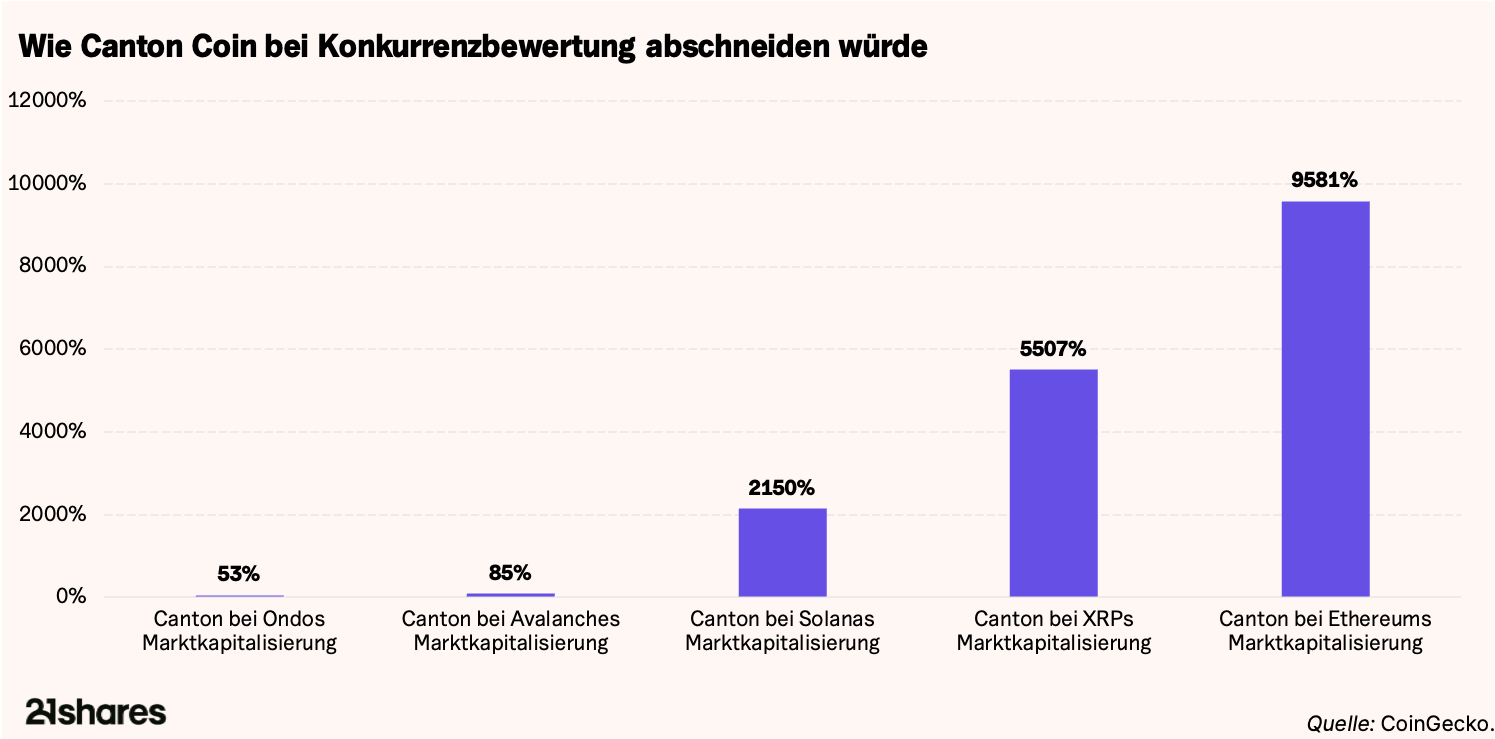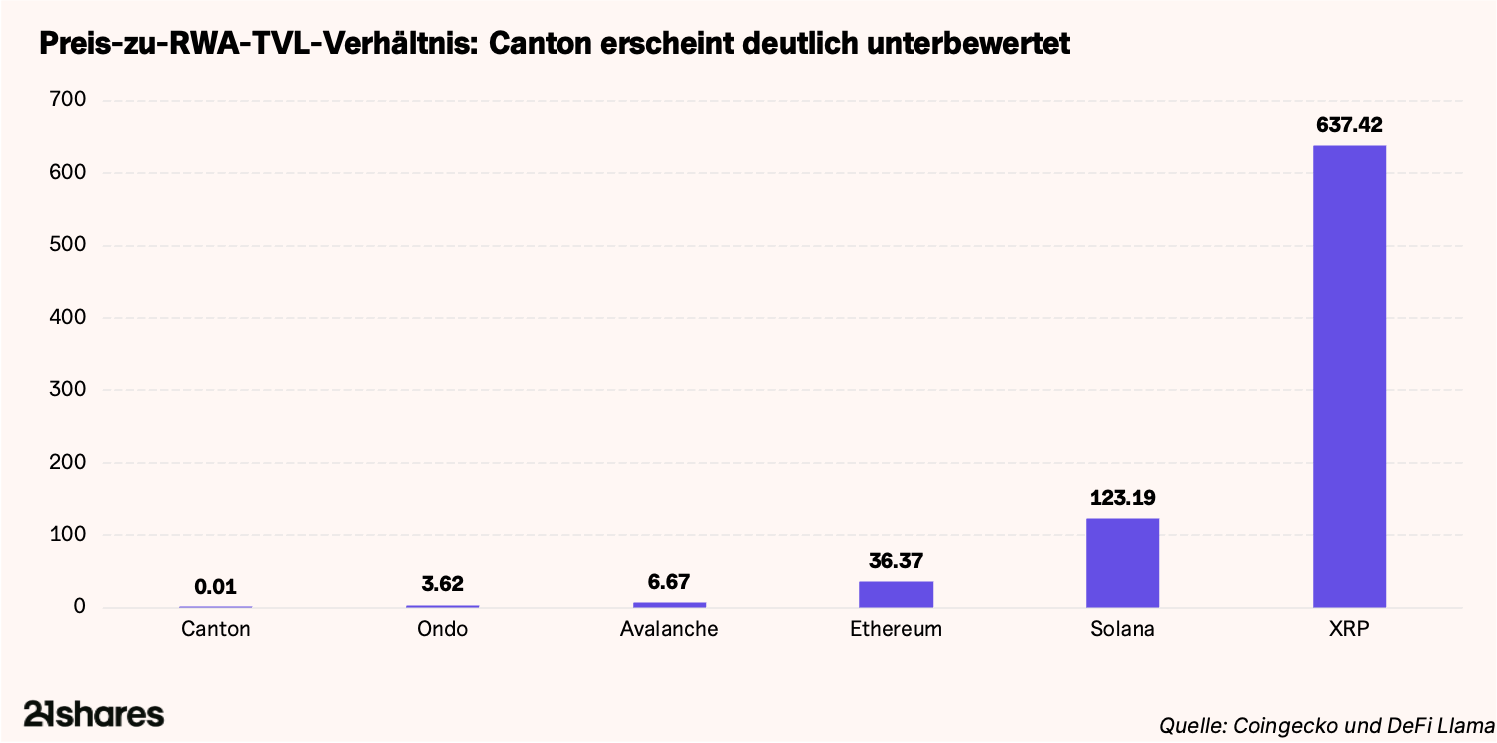Warum Canton die institutionelle Datenschutzlücke im DeFi-Bereich schließt



Datenschutz und Verbraucherschutz gehören zu den Themen, die für Finanzinstitute beim Einsatz von Blockchain-Technologie häufig eine Rolle spielen. Das Canton Network wurde speziell entwickelt, um die Hindernisse zu beseitigen, die traditionelle Finanzakteure bisher daran hindern, Vermögenswerte auf die Blockchain zu bringen. Es schließt gezielt die bestehende Datenschutzlücke und bietet eine Betriebsumgebung, die mit geltenden Vorschriften vereinbar ist.
Dieser Artikel erläutert den Unterschied zwischen offenen und zugangsbeschränkten Blockchains sowie zwischen öffentlichen und privaten Daten.
Wer an Blockchains teilnehmen kann und wer ihre Daten einsehen darf
Es gibt keine einzige Datenschutzeinstellung, die für alle Blockchains gleichermaßen gilt. Datenschutz bewegt sich vielmehr auf einem Spektrum, das von zwei Faktoren bestimmt wird: wer einer Blockchain beitreten darf und wer ihre Daten einsehen kann.
Die Teilnahme kann für alle vollständig offen sein (offene Blockchains) oder eingeschränkt für bestimmte Teilnehmer (zugangsbeschränkte Blockchains).
- Offene Blockchains wie Ethereum und Solana maximieren Transparenz und Liquidität, wodurch sämtliche Daten öffentlich sichtbar sind.
- Zugangsbeschränkte Netzwerke funktionieren eher wie ein Intranet, beschränken den Zugang auf autorisierte Parteien und bieten eingebaute Kontrollmechanismen für sensible Informationen.
Auch wenn viele Institutionen mit öffentlichen Chains experimentieren, erleichtern zugangsbeschränkte Umgebungen die Einhaltung regulatorischer Vorgaben erheblich.
Die Sichtbarkeit von Daten beschreibt die zweite Dimension. Öffentliche Chains legen alle Transaktionen offen, während private Chains die Einsehbarkeit auf Teilnehmer des Netzwerks begrenzen. Die meisten Finanzinstitute benötigen einen Mittelweg: die Möglichkeit, Informationen selektiv offenzulegen, Prüfpfade beizubehalten und mit Partnern zu kooperieren, ohne vertrauliche Daten preiszugeben.
Erfüllung institutioneller Anforderungen an Datenschutz auf der Blockchain
Über einen großen Teil des vergangenen Jahrzehnts hielten Datenschutzbeschränkungen Blockchains am Rand der traditionellen Finanzwelt. Öffentliche Chains sind für sensible Kundendaten zu transparent, während frühe, auf Privatsphäre ausgerichtete Blockchains weder interoperabel waren noch breite Branchenakzeptanz fanden.
Gleichzeitig sind die Vorteile der Blockchain, wie schnellere Abwicklung, geringere Kosten und verbesserte Mobilität von Vermögenswerten, für Finanzinstitute zunehmend unverzichtbar geworden. Im vergangenen Jahr haben Banken, Vermögensverwalter und Infrastrukturanbieter damit begonnen, ausgewählte Arbeitsabläufe auf die Blockchain zu verlagern. Datenschutz ist dabei zu einem entscheidenden Erfolgsfaktor geworden, da neue Architekturen die gezielte Vertraulichkeit ermöglichen, die regulierte Unternehmen benötigen.
Netzwerke wie Canton bieten heute diesen idealen Privatsphäre-Bereich und ermöglichen institutionelle Teilnahme, ohne dass die Einhaltung von Vorschriften beeinträchtigt wird.
Wie kann Canton die Datenschutzlücke schließen?
Canton, entwickelt von ehemaligen Ingenieuren von Goldman Sachs und DRW, bietet eine datenschutzfreundliche Grundlage, die den traditionellen Zielkonflikt zwischen Transparenz und Isolation aufhebt. Das Netzwerk funktioniert als ein Verbund aus vielen Teilnetzen. Jeder Teilnehmer betreibt ein eigenes, anpassbares Intranet mit Steuerungsmechanismen, Zugriffsparametern und Datenschutzeinstellungen, vergleichbar mit einer Bank, die sensible Kundendaten in einem abgesicherten internen System verwaltet. Diese Intranets bleiben durch den Global Synchronizer von Canton interoperabel, wodurch Institutionen Vermögenswerte und Daten austauschen können, ohne private Informationen offenzulegen.
Trotz seines kürzlichen Starts verarbeitet Canton bereits täglich Repo-Transaktionen1 im Wert von über 100 Milliarden Dollar, ein eindeutiger Hinweis auf die starke institutionelle Nachfrage. Bedeutende Unternehmen wie Goldman Sachs, BNP Paribas, Microsoft, Deutsche Bank, Circle und Polychain2,3,4 sind als Validatoren, Nutzer und Investoren beteiligt.
Canton Coins sind darauf ausgelegt, die Netzwerksicherheit zu erhöhen
Der native Token des Netzwerks, Canton Coin (CC), bildet die Grundlage für wirtschaftliche Aktivität und Sicherheit. Statt Abogebühren in Fiatwährungen zu zahlen, entrichten Institutionen Nutzungsgebühren in CC, um auf Abwicklungsinfrastruktur und Netzwerktechnologie zuzugreifen. Netzbetreiber, hauptsächlich regulierte Finanzinstitute, validieren Transaktionen und setzen Zugangsregeln durch. Sie erhalten neu ausgegebene CC als Vergütung für Stabilität und Kapazität, während bei Ausfällen oder Fehlverhalten Sanktionen greifen. Ein Teil aller Gebühren wird vernichtet, wodurch das Angebot sinkt, wenn die Nutzung steigt. Bereits mehr als 110 Millionen Dollar in CC wurden aus dem Umlauf entfernt.
Die Argumente für Canton
Canton konzentriert sich auf eine der größten langfristigen Chancen im Kryptomarkt: die Tokenisierung traditioneller Vermögenswerte, deren Marktvolumen in den kommenden zehn Jahren auf 10 bis 30 Billionen Dollar geschätzt wird. Das Netzwerk wickelt bereits jährlich tokenisierte Vermögenswerte im Wert von mehr als 4 Billionen Dollar ab, während seine Bewertung weiterhin nur einen kleinen Bruchteil vergleichbarer öffentlicher Blockchains ausmacht.

Das Verhältnis von Preis zu gesperrten Vermögen (TVL) liegt bei etwa 0,01 und deutet darauf hin, dass Investoren nur einen Cent für jeden Dollar an On-Chain-Vermögenswerten zahlen, deutlich weniger als bei Ethereum oder XRP.

Diese Bewertungslücke besteht fort, obwohl die institutionelle Nutzung deutlich zunimmt. Canton löst die zentralen Hürden, denen Institutionen auf öffentlichen Blockchains begegnen: Datenschutz, Compliance und deterministische Abwicklung. Mit der wachsenden Tokenisierung und der Verlagerung weiterer Arbeitsabläufe auf die Blockchain haben Netzwerke, die für Sicherheit und Datenschutz auf Regulierungsebene ausgelegt sind, die besten Chancen, einen großen Teil des Marktes für sich zu gewinnen.
Fußnoten:
- Canton Network. “How Canton Network Delivers Institutional-Grade Privacy.” Canton Network Blog, https://www.canton.network/blog/how-canton-network-delivers-institutional-grade-privacy
- Canton Network. “Goldman Sachs, Microsoft and Deutsche Bank Are Testing Canton Network.” https://www.canton.network/news/goldman-sachs-microsoft-and-deutsche-bank-are-testing-canton-network
- Canton Network. “How Canton Network Delivers Institutional-Grade Privacy.” Canton Network Blog, https://www.canton.network/blog/how-canton-network-delivers-institutional-grade-privacy
- CryptoRank. “Digital Asset ICO Overview.” CryptoRank.io, https://cryptorank.io/ico/digital-asseton
This report has been prepared and issued by 21Shares AG for publication globally. All information used in the publication of this report has been compiled from publicly available sources that are believed to be reliable, however, we do not guarantee the accuracy or completeness of this report. Crypto asset trading involves a high degree of risk. The crypto asset market is new to many and unproven and may have the potential not to grow as expected.Currently, there is relatively small use of crypto assets in the retail and commercial marketplace in comparison to relatively large use by speculators, thus contributing to price volatility that could adversely affect an investment in crypto assets. In order to participate in the trading of crypto assets, you should be capable of evaluating the merits and risks of the investment and be able to bear the economic risk of losing your entire investment.Nothing herein does or should be considered as an offer to buy or sell or solicitation to buy or invest in crypto assets or derivatives. This report is provided for information and research purposes only and should not be construed or presented as an offer or solicitation for any investment. The information provided does not constitute a prospectus or any offering and does not contain or constitute an offer to sell or solicit an offer to invest in any jurisdiction. The crypto assets or derivatives and/or any services contained or referred to herein may not be suitable for you and it is recommended that you consult an independent advisor. Nothing herein constitutes investment, legal, accounting or tax advice, or a representation that any investment or strategy is suitable or appropriate to your individual circumstances or otherwise constitutes a personal recommendation. Neither 21Shares AG nor any of its affiliates accept liability for loss arising from the use of the material presented or discussed herein.Readers are cautioned that any forward-looking statements are not guarantees of future performance and involve risks and uncertainties and that actual results may differ materially from those in the forward-looking statements as a result of various factors.This report may contain or refer to material that is not directed to, or intended for distribution to or use by, any person or entity who is a citizen or resident of or located in any locality, state, country or other jurisdiction where such distribution, publication, availability or use would be contrary to law or regulation or which would subject 21Shares AG or any of its affiliates to any registration, affiliation, approval or licensing requirement within such jurisdiction.










_logo.svg)
.svg.png)